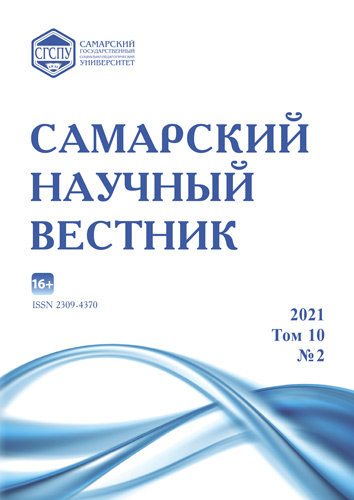«Manchurian Incident» in 1931 and the periodical press reaction in the USA
- Authors: Buranok S.O.1
-
Affiliations:
- Samara State University of Social Sciences and Education
- Issue: Vol 10, No 2 (2021)
- Pages: 180-183
- Section: Historical Sciences and Archaeology
- URL: https://journal-vniispk.ru/2309-4370/article/view/78116
- DOI: https://doi.org/10.17816/snv2021102208
- ID: 78116
Cite item
Full Text
Abstract
The paper is devoted to the problem of approaches and assessments formation of the Chinese crisis of 1931 in the US press. No research in China’s image during the Interbellum would be complete without studying the press of the participating parties. In order to give a detailed analysis of the international relationships in terms of the global transformations from the American point of view, the author draws relevant newspaper articles published after 1931. The materials of the American press of 1931 dedicated to the search for the most efficient optimal strategy of building relations with China and Japan show, among other things, a steady interest of American mass media towards negative and positive experience of Asian policy. All the complexity of the crisis perception was reflected in the press, which tried to form an understanding of the new process in which America was involved. In the course of a difficult search of an optimal way and a view on the crisis, several polar points of view were formulated in the American press. Thus, the study of the attitude of the major American press and the positions of the most prominent journalists is of interest to the analysis of how the USA after the Chinese crisis gradually realized the place of the country in the new system of international relations. In addition, the press shows how the United States planned to develop interaction with the warring states in the Pacific Ocean. The paper is based on the materials of both Democratic and Republican press of the USA.
Full Text
##article.viewOnOriginalSite##About the authors
Sergey Olegovich Buranok
Samara State University of Social Sciences and Education
Author for correspondence.
Email: witch-king-1@mail.ru
doctor of historical sciences, associate professor, professor of World History, Law and Methods of Teaching Department
Russian Federation, SamaraReferences
- Hsu S. Japan and Manchuria // Pacific Affairs. 1930. № 9. P. 854–864.
- Orchard J.E. Japanese Expansion in China // The Annals of the American Academy of Political and Social Science. 1930. Vol. 152. P. 328–337.
- Dealey J. The Policy of the United States in the Pacific // The Southwestern Political and Social Science Quarterly. 1929. № 3. P. 290–300.
- Clyde P.H. The Open Door // Pacific Affairs. 1930. № 9. P. 834–841.
- Fuller R. Sarajevos in Asia // The North American Review. 1930. № 1. P. 107–112.
- Japanese Force Defeat Chinese // The Tuscaloosa News. 1931. September 20. P. 1.
- Stimson Н. The Far Eastern crisis: recollections and observations. New York: Harper & Bros., 1936. 293 p.
- Streit C. League Intervenes for Peace in China // New York Times. 1931. September 19. P. 1.
- War in China // The Washington Post. 1931. September 21. P. 2.
- Fitzgerald S. Pearl Harbor: Day of Infamy. Bloomington, 2006. 96 p.
- Japanese Storm Mukden // Youngstown Vindicator. 1931. September 19. P. 1.
- Mukden Taken by Japanese // Pittsburgh Post-Gazette. 1931. September 19. P. 2.
- Chicago Tribune. 1931. July – December.
- Cressey G.B. The New Map of China // Geographical Review. 1930. № 4. P. 653.
- Cressey G.B. The geographic regions of China // The Annals of the American Academy of Political and Social Science. 1930. Vol. 152. P. 1–9.
- Japanese in Mukden // Victoria Advocate. 1931. September 19. P. 2.
- Said E.W. Orientalism. New York: Pantheon Books, 1978. 368 p.
- Kowner R. Becoming and Honorary Civilized Nation: Remaking Japan's Military Image during the Russo-Japanese War, 1904–1905 // The Historian. 2001. № 1. P. 18–38.
Supplementary files






